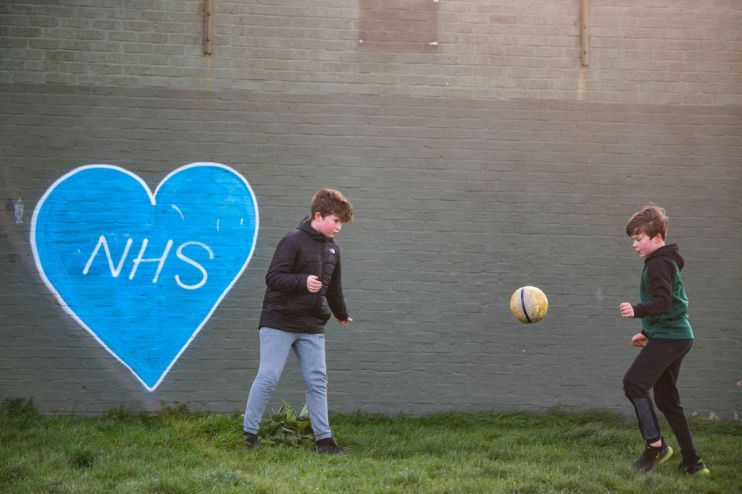Life after lockdown: Returning to the classroom won’t be straightforward for our vulnerable children

2020 is not the year anyone expected.
The coronavirus pandemic has upended the lives of millions: people have lost jobs, been furloughed or taken pay cuts, and purse strings have tightened as a result.
The impact has been especially hard on this country’s disadvantaged families — in particular, children’s education.
It is a challenge I understand only too well. In January, I stepped away from a career in the telecoms industry and became chief executive at Greenhouse Sports, whose mission resonated with me: “Every child needs a fair chance to succeed”. Our charity works with more than 7,300 young people in some of London’s poorest communities, providing free sports coaching and mentoring in schools during term time and sports camps in the holidays.
Some 69 per cent of the children we work with live in deprived areas (and many of those just walking distance from the Square Mile), meaning that even in “normal circumstances”, life is already hard.
Covid-19 has made it much, much harder. With schools shut, the extra support these low-income families normally receive, including that from charities, has been radically reduced.
In the last week it has been inspirational to see Manchester United and England footballer Marcus Rashford, a young man with a background like so many of the Greenhouse youngsters, take personal responsibility to support these vulnerable families. In doing so he has ensured that, over the summer months, children who normally receive free school meals will continue to get food vouchers.
But as Rashford himself said, this is only the start of what is needed to address growing inequality under lockdown.
Disadvantaged children started the year already twice as likely to leave school without Maths and English GCSEs than their more privileged peers. Now, there is a real fear that this leaning “gap” could become a cavern.
Reports suggest a fifth of schoolchildren have done little or no schoolwork at home, with four in 10 having no regular contact with teachers. Homeschooling may work fine for some, but those already struggling are falling further behind every day. The longer they cannot return to their classrooms, the bigger the challenge will be in getting these children back up to speed.
So how can we get disadvantaged children re-engaged and ensure they are able to catch up with their education once schools reopen fully?
This is where charities like ours can help, and why support in these times has become vital.
At Greenhouse, we had to stop direct contact between our coaches and kids during lockdown, but to overcome that we launched our “HomeCoach” programme, providing kids with free online sports and fitness sessions that can be completed at home, led by a small team of our professional coaches and volunteers.
Not only has HomeCoach helped our young people to stay active indoors when they do not have access to gardens or open spaces, but it has also ensured contact with adult mentors whom they normally see every day. We know that this regular contact with mentors has helped children retain focus and support their disrupted education, and will prove invaluable when they return to school and need to re-engage with their teachers.
We’ve heard from numerous families over the last few months about how important our work has been with their kids during lockdown, helping to give them structure and routine. That’s been echoed by Jan Shapiro, a headteacher at one of our partner schools, Addey and Stanhope in New Cross where 63 per cent of the children receive pupil premium funding.
She and her team have been providing 160 people with food every week, and 25 per cent didn’t have access to technology to submit their schoolwork. Yet where the children have connected, they’ve achieved around 85 per cent engagement with their education. She told me that our coach and the Greenhouse Sports team have been fundamental to the school’s Covid response and an inspiration, with fitness sessions boosting staff and young people’s morale and helping to keep the kids engaged.
Against the backdrop of the Covid economic fall-out, we and so many charities are experiencing an inevitable and significant shortfall in income. But Greenhouse Sports thrives off the positivity our coaches and mentors instill in their young groups, so we’ll continue to do everything we can to help these young Londoners with their development, education and wellbeing.
Their education — and their futures — depend on it.
This month, Greenhouse Sports launched its Life after Lockdown fundraising appeal, and we now enter a crucial week for donations. This is the start of Champions for Children, a week-long funding campaign led by The Childhood Trust. During this week, all donations to the charities involved, including Greenhouse Sports, are being matched. Find more information on how you can support Greenhouse Sports here.
Main image credit: Getty